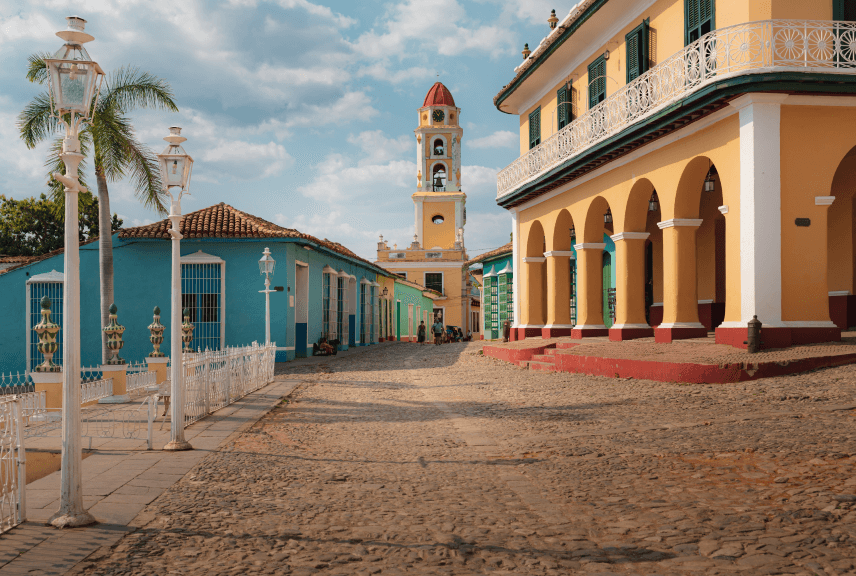Summary
- This comprehensive guide to Egypt’s travel requirements in 2025 outlines everything visitors need to know for a smooth and enjoyable trip.
- From passport and visa policies, including eVisa and visa-on-arrival options to health regulations, COVID-19 updates, and customs declarations, travelers will find all necessary pre-departure information.
- It covers special cases like travel to Sinai resorts, business visa rules, required documents, and safety tips.
- The article also includes helpful reminders about bringing currency, booking accommodations, respecting cultural norms, and the importance of travel insurance.
- Whether you’re planning a desert adventure or cultural exploration, this guide ensures you’re well-prepared for an unforgettable Egyptian journey.
Traveling to Egypt can be an exciting adventure that will provide memories that will provide the sensation of pure magnificence and thrill with its rich history, cultural treasures, gigantic works of art, and stunning landscapes. To ensure a smooth and enjoyable vacation journey, it’s important to be aware of the various travel requirements and considerations before traveling to Egypt. Passion Egypt Tours will provide you with an overview of the essential aspects you need to know before embarking on your epic holiday trip to the ethereal wonders of Egypt.
Passport For Traveling to Egypt
Travelers to Egypt must ensure their passports are valid for at least six months beyond their planned arrival date. A minimum of one blank page is required for entry stamps. While most nationalities need a visa to enter Egypt, citizens of certain countries, including Bahrain, Israel, Kuwait, Lebanon, Oman, Saudi Arabia, and the United Arab Emirates, can enter visa-free for short stays, typically up to 90 days.
Egyptian Visa For Traveling to Egypt
Most travelers to Egypt will need a visa to enter the country. Foreign nationals planning to travel to Egypt should ensure that their passport is valid for at least six months, have a digital copy of the passport’s information page, and have a credit or debit card for payment. While most nationalities require a visa, citizens of only ten countries can enter Egypt visa-free for a limited period. Citizens from over 100 countries, including the United States, the United Kingdom, Canada, and Australia, can obtain a visa on arrival at major Egyptian airports for a fee of USD 25, payable in cash.
Travelers from over 70 countries have the option to obtain an Egyptian visa online, known as the eVisa, which offers a convenient and fully online application process. If individuals are not eligible for the eVisa, they must apply for an Egyptian visa through their country’s embassy or consulate.
The majority of foreign nationals require a visa for Egypt, and Passport holders from certain countries and territories can visit for up to three months visa-free.
Egypt visa-free countries include the following:
Bahrain
Hong Kong
Kuwait
Lebanon (entry permitted only at Borg El Arab Airport, Hurghada Airport, or Sharm El-Sheikh Airport if arriving on a charter flight)
Macao
Oman
Saudi Arabia
United Arab Emirates
Malaysia (up to 14 days)
Note: Special conditions may apply; travelers should verify requirements based on their specific circumstances.
Visa On Arrival
Travelers from certain countries can obtain a visa upon arrival at major Egyptian airports.
Eligible Countries: Includes the United States, the United Kingdom, Canada, Australia, and several others.
Requirements:
A passport valid for at least six months.
Payment of the visa fee in cash (USD preferred).
Details of accommodation and return/onward travel.
Fees:
Single-entry visa: $25 USD.
Multiple-entry visa: $60 USD.
Validity: The visa on arrival allows for a stay of up to 30 days.
Egypt eVisa
Egypt offers an electronic visa (eVisa) system for citizens from over 180 countries, including the United States, the United Kingdom, Canada, Australia, and most EU nations. Travelers must apply online before their trip.
eVisa Application Process:
Fill out an online form.
Upload a digital copy of the passport information page.
Enter travel details (including accommodation and itinerary).
Pay the visa fee using a credit or debit card.
Processing Time:
Most eVisas are issued within 4 business days.
Validity:
Valid for 30 days from the date of entry.
Eligibility Criteria:
Must be from an eligible country.
Must be traveling for tourism and staying no longer than 30 days.
Required Documents:
A passport valid for at least 6 months from the date of arrival.
Citizens of Belgium, France, Germany, Portugal, and Italy may apply using their national ID.
A credit/debit card for payment.
The Required documents need several vital Information, which include:
Full name and date of birth
Passport number, issue and expiry dates
Nationality
Host/travel agency and accommodation details in Egypt
Arrival and departure dates
Complete travel itinerary
Applicants must double-check all submitted details to avoid errors or delays.
Special Circumstances For Traveling to Egypt
Visa Exemption for Sinai Resorts: Citizens of select countries can visit Sinai resorts (Sharm el-Sheikh, Dahab, Nuweiba, and Taba) without a visa for up to 14 days. An entry stamp with special permission is provided upon arrival.
Visiting Other Areas of Egypt: If travelers wish to leave the Sinai resorts and explore other parts of Egypt, a regular visa is required.
Visa Processing Time: Obtaining an Egyptian visa from the embassy usually takes 7-10 business days, even with expedited processing. Travel advisories can extend this time. To avoid delays, it’s advised to apply well in advance through the embassy or online via the authorized website. Alternatively, private expediters can provide rush visas, taking around 4-5 days.
Business Travel and Work Permits: Business travel in Egypt necessitates a work permit, typically obtained through the employer. The work permit also allows residency during its validity. Tourists wishing to work can change their status during a 3-month tourist/non-working visa, during which they can apply for a work permit.
Health Requirements For Traveling to Egypt
All travelers to Egypt will need to adhere to specified health requirements, as proof of yellow fever immunization is mandatory if arriving from an affected area. Additionally, an HIV test is required for stays exceeding thirty days, especially for those studying or working in Egypt.
Vaccinations: Staying updated with vaccinations is crucial. Travel clinics offer vaccinations for diseases like MMR, diphtheria, tetanus, pertussis, polio, varicella, hepatitis A, hepatitis B, typhoid, rabies, and influenza.
Food and Waterborne Diseases: Parts of Egypt have common food and waterborne diseases like Hepatitis A, Hepatitis B, schistosomiasis, and typhoid. Hygiene, consuming cooked food, and drinking boiled or bottled water are advised. Consider vaccinations for Polio (proof of vaccination), Rabies, and Yellow Fever.
Prescription Medication: Carry a medical certificate for prescribed medications. Some over-the-counter medicines are controlled in Egypt, requiring permission from the Ministry of Health to bring them in.
COVID-19 Measures: Egypt has lifted all COVID-19 entry restrictions; travelers are no longer required to present vaccination certificates or negative test results. However, it’s advisable to stay updated on any changes. Travelers arriving from countries with a risk of yellow fever transmission must present a valid vaccination certificate if they are over nine months old or have transited through such countries for more than 12 hours. Additionally, vaccinations for hepatitis A, hepatitis B, typhoid, and rabies are recommended, depending on the traveler’s itinerary and activities.
Changing Regulations: Egypt’s rules can change quickly. Travelers should have a well-researched plan, keep their eyes open, stay informed through the Ministry of Health and Population’s Arabic social media, and be prepared for any updates.
Other Requirements For Traveling to Egypt
When booking your flight, make sure to check with your airline for any specific requirements they might have. Always check the departure and arrival dates and match them to the time of your holiday tour. Some airlines might ask for information about your accommodation or your tour itinerary in Egypt or require you to provide additional health-related documents, especially in light of the ongoing global health situation, so make sure to have all these documents ready.
Be aware of restrictions at entry points: you can bring in/out up to 5,000 Egyptian pounds, up to $10,000 (declare overages), and certain valuables require declaration. Approval is needed for satellite phones/radios, drones, or camera equipment. When leaving, present listed electrical items in your passport, show the entry stamp, and have the required documents for certain medicines.
Egyptian authorities can confiscate prohibited items, returned during departure. Follow airport authorities’ guidance and avoid carrying illegal items that cause trouble at the border.
Additional Tips for Traveling to Egypt
Egypt is generally a safe destination for travelers, but it’s always wise to exercise common-sense precautions. Stay informed about the current political and security situation in the country, follow local advice, be aware of the local cultural customs, and avoid any protests or large gatherings.
It’s highly recommended to purchase comprehensive travel insurance that covers medical emergencies, trip cancellations, lost belongings, and other unexpected events. This can provide you with peace of mind during your journey. We advise you to purchase your travel insurance with Nomad.
When traveling to Egypt, it’s important to stay aware and follow all the requested requirements. Most travelers need a visa to enter, which can be obtained online or from the Egyptian Embassy. Ensure you have a valid tourist visa, a passport with at least 6 months of validity, and two empty visa pages.
Make sure to bring your travel itinerary, proof of accommodation, and sufficient funds, plus anything else you might need.
The official currency of Egypt is the Egyptian Pound (EGP). It’s advisable to have some local currency on hand for small purchases, as not all places accept credit cards, but there are ATMs found all over the cities. Stay updated on the current exchange rates and consider notifying your bank about your travel dates to prevent any issues with using your credit or debit card abroad.
Respecting local customs and dress codes, especially when visiting religious sites, will enhance your travel experience. Make sure to educate yourself about your travel destination by simply reading our highly detailed and informative travel blog that answers a lot of important questions like Best time to travel to Egypt, What to Visit in Egypt, What to Pack in Egypt, What to wear in Egypt, What to Know in Egypt, and everything else that you could you wandering about.














